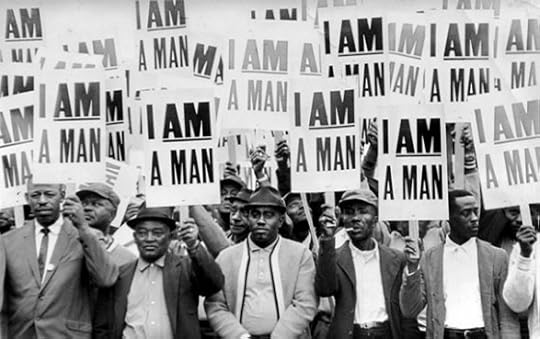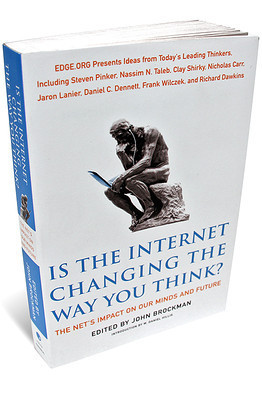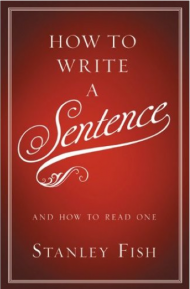Justin Taylor's Blog, page 368
January 17, 2011
Double Victory through Love and Suffering

From MLK's sermon "Loving Your Enemies," delivered on November 17, 1957, at Dexter Avenue Baptist Church in Montgomery, Alabama:
To our most bitter opponents we say:
"We shall match your capacity to inflict suffering by our capacity to endure suffering.
We shall meet your physical force with soul force.
Do to us what you will, and we shall continue to love you.
We cannot in all good conscience obey your unjust laws because noncooperation with evil is as much a moral obligation as is cooperation with good.
Throw us in jail and we shall still love you.
Bomb our homes and threaten our children, and we shall still love you.
Send your hooded perpetrators of violence into our community at the midnight hour and beat us and leave us half dead, and we shall still love you.
But be ye assured that we will wear you down by our capacity to suffer.
One day we shall win freedom but not only for ourselves. We shall so appeal to your heart and conscience that we shall win you in the process and our victory will be a double victory."
HT: Mike McKinley
Jim Crow Is About Theology

White supremacy was, like all iniquity from the Garden insurrection on, cruelly cunning. Those with power were able to keep certain questions from being asked by keeping poor and working-class white people sure that they were superior to someone: to the descendants of the slaves around them. The idea of the special dignity of the white "race" gave something of a feeling of aristocracy to those who were otherwise far from privilege, while fueling the fallen human passions of wrath, jealousy, and pride.
In so doing, Jim Crow repeated the old strategies of the reptilian powers of the air: to convince human beings simultaneously and paradoxically that they are gods and animals. In the Garden, after all, the snake approached God's image-bearer, directing her as though he had dominion over her (when it was, in fact, the other way around). He treated her as an animal, and she didn't even see it. At the same time, the old dragon appealed to her to transcend the limits of her dignity. If she would reach for the forbidden, she would be "like God, knowing good and evil." He suggested that she was more than a human; she was a goddess.
That's why the words "I Am a Man" were more than a political slogan. They were a theological manifesto. Those bravely wearing those signs were declaring that they'd decided not to believe the rhetoric used against them. They refused to believe the propaganda that they were a "lesser race," or even just a different race. They refused to believe the propaganda (sometimes propped up by twisted Bible verses) that they and their ancestors were bestial, animal-like, unworthy of personhood.
The words affirmed the thing that frightened the racist establishment more than anything. Those behind the signs were indeed persons. They bore a dignity that could not be extinguished by custom or legislation. I am a man.
The words also implied a fiery rebuke. The white supremacists believed they could deny human dignity to those they deemed lesser. They had no right to do so. They believed themselves to be gods and not creatures, able to decree whatever they willed with no thought to natural rights, or to nature's God. The signs pointed out what that those who made unjust laws, and who unleashed the water-hoses and pit-bull dogs, were only human, and, as such, would face judgment.
Why You Should Never, Ever Use Two Spaces After a Period
A long, well-informed rant against "two-spacers" who "are everywhere, their ugly error crossing every social boundary of class, education, and taste."
HT: @PhilGons
Do You Recognize the Extraordinary in God's Ordinary Providence?
"Clarence Macartney told the story about Dr. John Witherspoon . . . a signer of the Declaration of Independence and president of the (then) College of New Jersey. He lived a couple of miles away from the college at Rocky Hill and drove horse and rig each day to his office at the college.
"One day one of his neighbors burst into his office, exclaiming, 'Dr. Witherspoon, you must join me in giving thanks to God for his extraordinary providence in saving my life, for as I was driving from Rocky Hill the horse ran away and the buggy was smashed to pieces on the rocks, but I escaped unharmed!'
"Witherspoon replied, 'Why, I can tell you a far more remarkable providence than that. I have drive over that road hundreds of times. My horse never ran away, my buggy never was smashed, I was never hurt.'
"So we must beware of thinking that God is only in the earthquake, wind, and fire; of thinking that manna but not grain is God's food. Most of God's gifts to his people are not dazzling and gaudy but wrapped in simple brown paper. Quiet provisions of safety on the highway, health of children, picking up a paycheck, supper with the family—all in an ordinary day's work for our God."
—Dale Ralph Davis, Joshua: No Fallen Words (reprint: Christian Focus, 2000), pp. 48-49
January 16, 2011
"I Have a Dream"
January 14, 2011
Devotion and Doctrine
C. S. Lewis:
For my own part, I tend to find the doctrinal books often more helpful in devotion than the devotional books, and I rather suspect that the same experience may await others. I believe that many who find that 'nothing happens' when they sit down, or kneel down, to a book of devotion, would find that the heart sings unbidden while they are working their way through a tough bit of theology with a pipe in their teeth and a pencil in their hand.
B. B. Warfield:
Sometimes we hear it said that ten minutes on your knees will give you a truer, deeper, more operative knowledge of God than ten hours over your books. What! Than ten hours over your books on your knees?"
What Hath Balloon Boy to Do With Abortion?
Below are the opening paragraphs of my chapter, "Abortion: Why Silence and Inaction Are Not Options for Evangelicals," in Don't Call It a Comeback: The Old Faith for a New Day, edited by Kevin DeYoung (Crossway, 2010), pp. 179-180:

Do you remember "Balloon Boy"? By the time you read this, the stunt may only be a little-known question in Trivial Pursuit. Here's the short version: a publicity-hungry amateur-scientist father of three pulled off a hoax that captured the attention of America. On October 15, 2009, Richard Heene released a large gray helium balloon that looked like a UFO from a 1950s movie, then called the authorities to report that his nine-year-old son, Falcon, was trapped inside. As the balloon floated some fifty miles across the Colorado sky, newsrooms across America sprang into action. People prayed. Emergency medical teams stood by. Police squads were mobilized. Denver International Airport was shut down. Several National Guard helicopters were in hot pursuit.
As the helium began to leak, the balloon eventually crashed in a field. Rescuers made a mad dash to lessen the blow, then to save the boy's life—if he was still alive. As it turned out, there was no one inside the balloon! A manhunt was quickly organized, thinking that perhaps Falcon had fallen out earlier. But then came word that Falcon was safe and sound at home. He had been hiding—per his father's instructions—in the family attic. He got sleepy, had fallen asleep, and awoke a few hours later to a media frenzy.
He went to sleep as Falcon and awoke as Balloon Boy.
This is not a chapter about balloons, hoaxes, and men who use their children as pawns to pitch a reality TV show. It's a chapter about abortion—one of the most painful and politicized issues in our public discourse. So what exactly does the killing of a baby in the womb have to do with the boy in the balloon? I bring it up for one reason. It helps to focus our attention on a crucial question: what's in there? If we believe that there is a human being within that balloon, we will stop at nothing to protect and to preserve that life. No amount of money or energy or equipment is too big: we must do everything we can to protect and preserve the life of a fellow human being in distress. Likewise, if we believe that what's growing inside of a woman's womb is a living human being, should we not think the same? If the balloon is merely filled with air, or if the womb is merely occupied with a clump of cells, then no action is needed. Knowing what's inside makes all the difference in the world.
New Podcast: Russell Moore's "The Cross & the Jukebox"
Today is the official launch of my new weekly podcast "The Cross and the Jukebox: Roots, Music, and Religion." The first episode, which looks at Hank Williams' "I Saw the Light," is up now and available here in this post. Every Friday morning, there will be a new conversation about a particular song or artist, and what it can tell us about our neighbors and their often simultaneous longing for and rebellion against the gospel.
So why have this conversation every week? Well, first of all, because I'm already having it, and decided to let my friends listen in. When I used to guest-host the Albert Mohler radio program, I would frequently start and end each segment with bumper-music and spend a few minutes talking about what was really going on in the song and how it related to our topic. Since then, I hear from people all over the place who want to continue some of those discussions.
More importantly, I think lyrical music can often get to the bone of what's really going on in hearts, minds, and culture than abstract discourse can. Our neighbors are often more honest about what they really think and feel when they're singing than when they're talking. And so are we.
That's why, I think, the Apostle Paul interrupted his interrogation by his critics at Mars Hill by quoting their poets. What Paul was doing was not so much "building a bridge to the gospel" at that point as saying, "You don't really believe what you're saying. I've heard your music. Now let's talk about Jesus and the resurrection."
Most often on this podcast, we'll be talking about country music. Why? Well, first of all, because that's what I know. Some of the earliest memories I have are of sitting with several generations of my family listening to the Grand Old Opry. The music of Carters and Cash and Jones and Haggard has stayed with me throughout my life. If I'd been born in different circumstances, I'd probably be drawn to different music.
But, more critically, because country music and the genres that created and fueled it (blues, bluegrass, folk) got at something closer to the bone of human existence than the commercialized pop jingles every generation brings forward. And, with this the case, country music (and forms like it, most notably some aspects of hip-hop) can expose the hidden theologies around us, and within us.
Roots music, after all, is remarkably honest about things commercial music often doesn't want to talk about: despair, loneliness, heartache, sin, redemption, sowing what one reaps. And in so doing, this music often unveils what it looks like to be, in Flannery O'Connor's words, "Christ-haunted." Often, in this music, there's a Christian subtext but no Christianity. There's some kind of redemption but no crucifixion. There's grace, and grace abounding, but often grace that sin may abound.
This is how Wilie Nelson can end a concert by moving, without comment, from crooning "Whiskey River, Take My Mind" to softly singing "Amazing Grace." The point isn't that Willie does this. It's that he knows stadiums full of concert-goers want him too.
In the music of the Bible Belt, we can hear something of what it means to be simultaneously the Publican and the Pharisee. It's a religious identity, indeed a "Christian" identity, with a tortured conscience. That's an awfully heartsick place to be.
So I'd love it if you'd subscribe to the podcast and join me around the jukebox every week. Some of you will know the music I'm playing, and some of you will have never heard anything like it before. I'll introduce you to some old famous songs and some old obscure songs, and some new stuff too. And then we'll talk about how what we've just heard can help us to love and listen to our neighbors, and to sort out the almost-gospels hidden in our own psyches.
The Bible tells us the world is made up of theologians, some of whom acknowledge the Creator and some of whom don't (Rom. 1). We need to pay attention to the theologies of John Calvin and John Wesley, yes. But sometimes we also ought to pay a little bit of attention to the theologies of Johnny Cash.
Go here to subscribe to the podcast.
January 13, 2011
Is the Internet Changing the Way You Think?
 Is the Internet Changing the Way You Think?
Is the Internet Changing the Way You Think?
That's the title of a new book, edited by John Brockman. He posed that very question to 150 writers, pundits, scientists, scholar, visual artists, architects, and musicians.
In a review of the book for The Wall Street Journal Christine Rosen observes:
One theme emerges frequently from enthusiasts and skeptics alike: Precisely because there are such vast stores of information on the Internet, the ability to carve out time for uninterrupted, concentrated thought may prove to be the most important skill that one can hone. "Attention is the fundamental literacy," writes Howard Rheingold, the author of "Smart Mobs."
Rosen quotes philosopher Thomas Metzinger to the effect that "Attention is a finite commodity, and it is absolutely essential to living a good life."
New Testament scholar George Guthrie, reflecting upon the application of these observations to the spiritual life, writes on Spiritual ADD & the Skill of Focus.
A Conversation with Stanley Fish (Including "How to Write a Sentence")
 I am glad that Albert Mohler gave up his radio program. The program had value in itself, but he is now freed up—it seems to me—to do what he does best: have uninterrupted one-on-one conversations with serious thinkers. Along with the Ken Myers's Mars Hill Audio program, Mohler's Thinking in Public podcast is becoming a great resource for eavesdropping on intelligent conversation about first things.
I am glad that Albert Mohler gave up his radio program. The program had value in itself, but he is now freed up—it seems to me—to do what he does best: have uninterrupted one-on-one conversations with serious thinkers. Along with the Ken Myers's Mars Hill Audio program, Mohler's Thinking in Public podcast is becoming a great resource for eavesdropping on intelligent conversation about first things.
His latest was a conversation with Stanley Fish, where they talk in part about Christians in the public sphere and the battle for ideas, along with issues like academic freedom.
But Professor Fish is also the author of a new book: How to Write a Sentence: And How to Read One.
Here is part of their exchange about the book:
Mohler: Your new book is entitled How to Write a Sentence: And How to Read One. I have to tell you I found reading this an absolute delight. It's very different than anything at least I have found that you have written before. It's really a celebration of the power of the sentence and a very fascinating tour through English literature.
Fish: Yes it is. It's actually two books which I tried to bring together. One is as suggested by the title, How to Write a Sentence: an account of how sentences work and why sentences fall apart, and what kind of exercises that you might perform that would put you in better command of the structure of sentences. There, my key statement is that "a sentence is a structure of logical relationships," and I spend some time trying to explain exactly what that means. But I start also from the very beginning illustrating the grammatical or craft points I'm making . . . by some very nice and indeed great sentences. And at a certain point of the book the formal instruction recedes—never quite goes away, but recedes from the foreground. And the immense pleasure of encountering absolutely stupendously great sentences you can marvel at in the same way you marvel at a high level athletic performance, that then takes center stage. And the book begins to, as it were, ride on the tracks of these absolutely amazing authors who can do things with the very same language that you and I use every day that you and I would never be capable of doing.
Justin Taylor's Blog
- Justin Taylor's profile
- 44 followers













